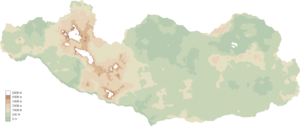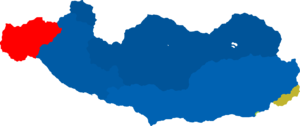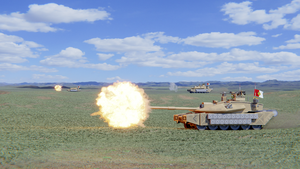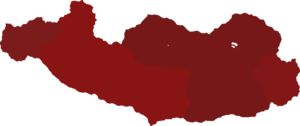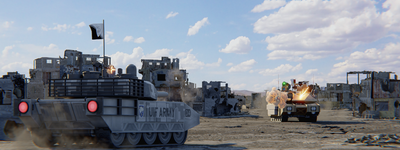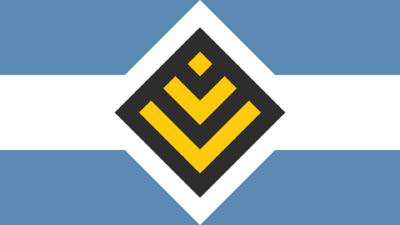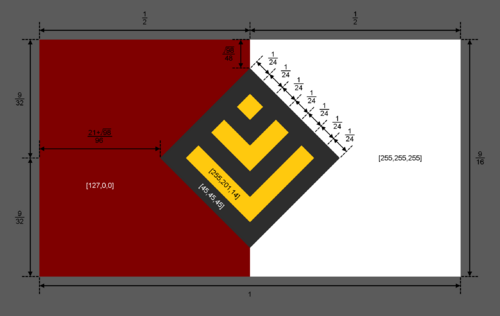Sarconia
|
Combined Provinces of Sarconia
Sarcon
|
|||||
|---|---|---|---|---|---|
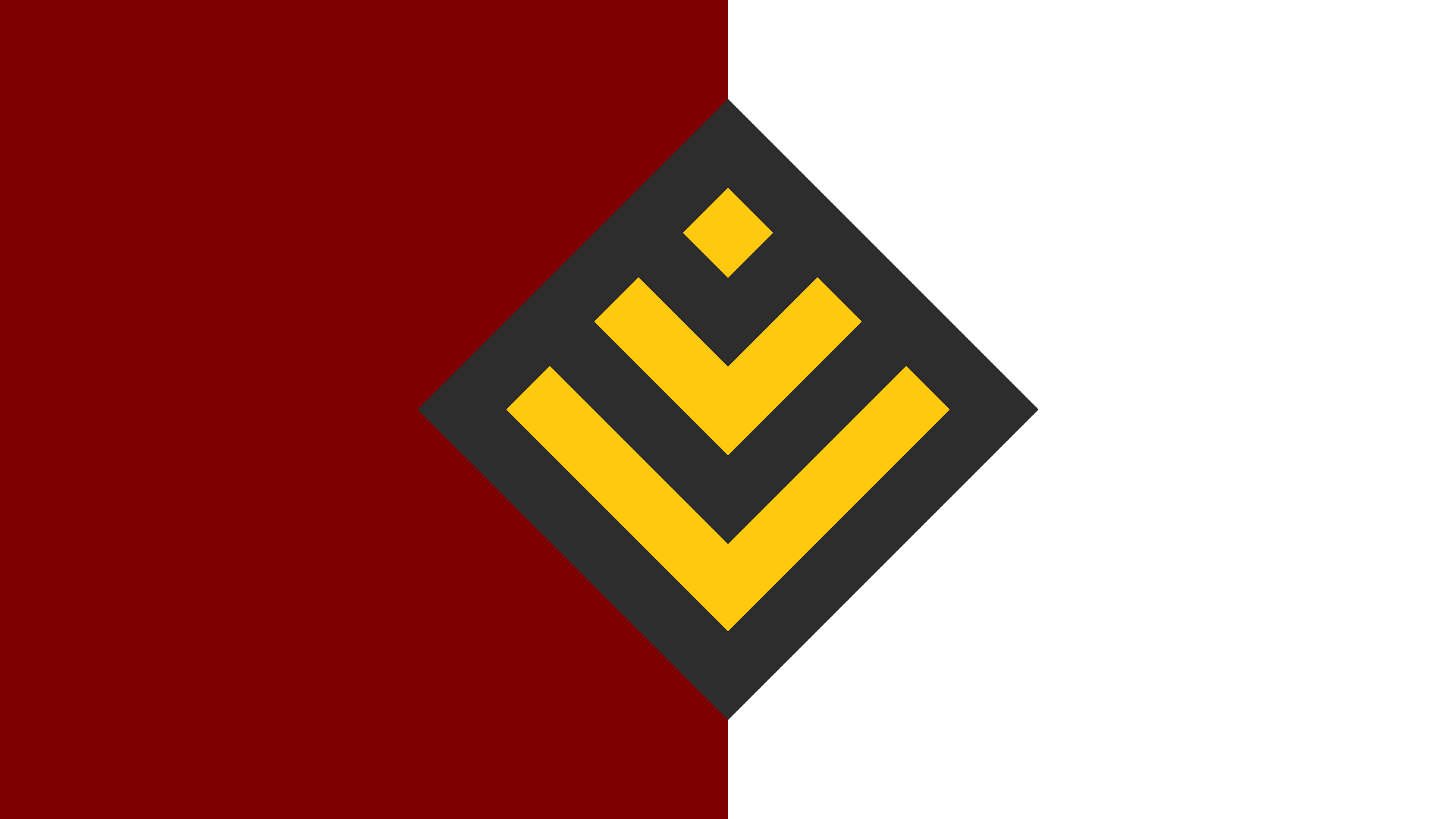 |
|||||
| Motto | "Sarcon ud Netuari" (Sarconia Endures) |
||||
| Common Name | Sarconia | ||||
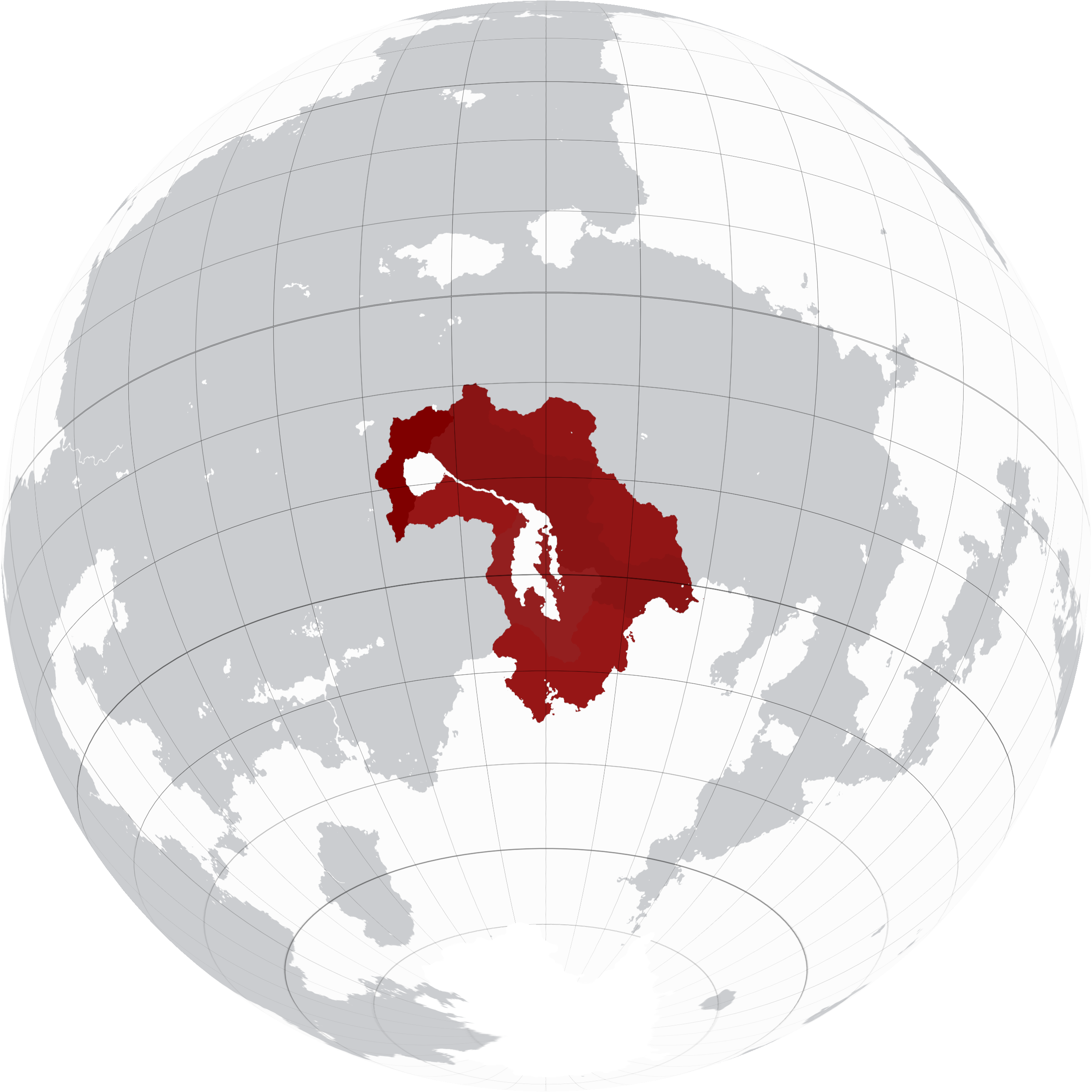 |
|||||
| Sarconian territories in 2171 | |||||
| Demonym | Sarconian | ||||
| Official languages | Sarconian, Zeouli, Tavan | ||||
| Currency | Aurid | ||||
| Politics | |||||
| Capital | Aerfel City | ||||
| Government | Davedhrienist one-party federation | ||||
| Foundation | 2153 (Post-Dorvic breakup) 2115 (Zeoul and southern provinces reintegration) 2109 (Northern reunification) 2062 (Aquarian Protectorate) |
||||
| Preceded by | United Doren Front | ||||
| Demography | |||||
| Ethnicities | 66% Dorvic 27% Zeouli 7% Other |
||||
| Population | 15,424,000 | ||||
| Area | 48,200 km² | ||||
Sarconia (Sarconian: Sarcon [sarkoʊniæ]), formally the Combined Provinces of Sarconia or the CPS, is a nation in Doren and Greater Baskay Bay. It is bordered by Hermia to the east and the various provinces, tribes and city states of Central Doren to the north.
The history of modern Sarconia begins as a satellite state of communist Arcadia. After its collapse, Sarconia reverted to a land of nomadic tribes and city states. The nation as it is today was split in half in 2050, when the southern provinces of Dziak, Calyx, Ahcurt, Amerb, Anidem and Arrataxt Island elected to create the Aquarian Union with Zeoul. Its northern territory would then be assimilated into the Red Horde in 2060, only to be inducted as a protectorate of Aquaria in 2066 following its dissolution. A period of hyperinflation caused the fragile developed regions of Sarconia to fall into near anarchy, freeing itself of Aquarian influence.
Political and paramilitary actors in Sarconia would go on to unite the Combined Provinces of Doren over the 2070s, only for the superstate to be destroyed in the Second Continental War. The conflict saw Sarconia ravaged by orbital bombardment in the Shattering and outbreaks of mass famine immediately following.
The nation then became the focus of the Second Sarconian Counterinsurgency from 2085-2089. Sarconia nevertheless recovered to overcome the Republic of Aquaria in 2115 and reintegrate its linguistically Sarconian northern provinces. This was followed by a short period of open warfare with Zeoul before its surrender, after which its states were also absorbed into the country.
| “ | Through hellfire and famine, Sarconia endures. | ” |
| —Davedhrein Kerman, in a prerecorded radio speech, 2086 | ||
Coupled with the collapse of the Owlian Union, the shifting balance of power within Greater Baskay Bay in the early 2200s allowed Sarconia to form the United Doren Front alongside other nations and provinces of the continent. After the UDF's dissolution in 2152, Sarconia emerged as the primary inheritor of its territories and resources, which saw the provinces of Rairch, Lauth, Qazan, Ichelica, Gambla and Tassenzi all become a part of the state.
The most developed areas of Sarconia are technologically advanced, but this varies greatly across the country. As a result of the devastation wrought during the Second Continental War, national infrastructure lags signifcantly behind its global peers. Sarconia historically ranked poorly on the Kerman Development Index, but since the early 22nd century has been rapidly improving. As of 2190, it is currently rated as Medium.
Etymology
The name Sarconia originates with the native word Sarcon, derived from the Sarconian Ssar ("Great") and Khcon ("Steppe"). Zeouli are believed to have first added the suffix -ia, which appears in both Marian and Owlian dialects used to denote a dominion or territory. In part due to the near extinction of the traditional Sarconian script, and the seafaring Zeouli's much greater cultural reach than that of the relatively static Khanates, Sarconia became the more popular term in parlance outside of the nation itself. In 2109, it was formally adopted as the name of the state.
Geography
Sarconia is almost entirely contiguous and lies mostly between latitudes 10° to 35°S and longitudes 174° to 137°W.
Climate
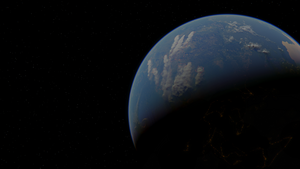
The harsh arid climate of the grasslands make them poorly suited for cultivation. This was significantly worsened by the Slow Bomb bombardment of the nation in 2082 and the ensuing firestorms; In the years immediately following Sarconian agricultural output dropped to zero and severe famine took hold over the population.
Biodiversity
Within Sarconia, 104 mammal species, 314 avian species, 85 fish species, and three amphibious species have been reported.
Urban Areas
Northern Sarconia is much less urbanised than most nations. Until the 21st century, small monastaries were the most common form of permanent structure. The growth of modern cities has only seriously occurred along the banks of the Sarconian Sea, in Aerfel, Koyma, Qazan City and Lauth. Even these have large Nuhe (Sarconian: "Cloth") Districts, where thousands of yurts are pitched and share communal public facilities and infrastructure. Towns and smaller settlements are almost non-existent, as the majority of the population outside Sarconian Sea depression remains nomadic.
In southern provinces such as Ahcurt and Amerb which benefitted from development under Aquaria, the situation is more typical.
Politics
Government
- See Also: Davedhrienism
Sarconia is nominally a Democratic Federation. It operates a one-party system. This sole party has no name, but traces its roots to Davedhrein Kerman's political and paramilitary faction from 2066 through to 2115. In the absence of an official moniker it is often referred to as simply the Sarconian State, or just the State. There is no official constitution.
The government practices a form of economic statism. Jurisdiction over social affairs is highly devolved to the systems of each province, but control over economic planning, taxation and military affairs is centralised in Aerfel.
Subdivisions
Sarconia contains fifteen provinces and the administrative region of Zeoul.
Foreign Relations
Sarconia maintains close ties with Hermia and other Dorvic states across the plains of the continent.
Demographics
Languages and Culture
| “ | Sarconian tradition is unique. No other people practice a tradition of vicissitude. | ” |
| —Unknown | ||
The dominant language of Sarconia is Sarconian. There is also a significant Zeouli speaking population, though citizens fluent in both are relatively uncommon. Tavan is also spoken in some regions.
A large fraction of Sarconia's population is comprised of nomadic tribes. These tribes follow a traditional lifestyle, dwelling in yurts with little technology and no electricity. They are spread across the steppes, migrating with cattle throughout the year. Family and community play a central role in nomadic society, an attitude which has survived into the modern cities of the nation.
Education
Sarconia’s educational system is partially devolved across the federation, and varies significantly at this level. Since 2118, the state has offered free lodging and schooling to the children of nomadic families on a seasonal basis in cities such as Aerfel and Koyma to prevent pupils falling through the cracks as a result of migrations. This scheme operates concurrently with provincial systems. Illiteracy rates have fluctuated immensely throughout the nation's history, though are currently relatively low at around 3 percent. An extremely high percentage of illiterates are nomads, which complicates the tracking of this statistic.
Religion
Traditional Sarconian culture is tied to its shamanistic system of belief. Historically associated with specific figures within the tribal hierarchy, the worship of spirits and ancestors is now performed at all levels of society. The island of Arrataxt holds special significance as the place considered closest to the spirit world.
During Sarconia’s time as an Arkadii satellite state this religion was suppressed, but quickly resurged during the Great Decline and has since remained extremely popular.
Age
###
Military
The Sarconian Armed Forces are split across three service branches: the Sarconian Air Force, Sarconian Ground Force, and the Sarconian Maritime Force. Each is made up from professional volunteers.
The armed forces seek to enforce Sarconia's status as a regional power in fitting with the nation's stated international aims. As such, their doctrines, training and inventories are constructed with almost no concern for overseas force projection or space power, instead being oriented towards the successful prosecution of land warfare across Doren. Most affected by this approach has been the Maritime Force, which is much smaller in terms of funding and manpower than the other branches. This disregard for the navy has seen Zeoulian shipbuilding as an industry shrink by over 60 percent since 2115.
Air Force
- Main Article: Sarconian Air Force
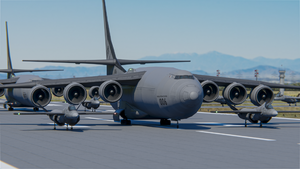
The Sarconian Air Force is the air service branch of the Sarconian Armed Forces.
Ground Force
- Main Article: Sarconian Ground Force
The Sarconian Ground Force is the land service branch of the Sarconian military. It is the largest branch. Since 2115, the Ground Force has participated in the Fall of Aquaria, the Maryurt War and peacekeeping operations during the Zeoulian Rebellion. It operates a highly mechanised force.
Much of the Ground Force's doctrine centres around open conflict in the Dorvic plains, with a strong focus on heavy armour and combined arms operations with the Air Force.
Maritime Force
- Main Article: Sarconian Maritime Force
The Sarconian Maritime Force is the Sarconian Armed Forces' naval service branch. It is significantly smaller than the Air and Ground Forces in terms of funding and personnel.
Economy
- See Also: Corporations of Sarconia
Sarconia operates a centrally planned economy, where the production, distribution, importation and exportation of goods is directed according to the state. Public sector employment accounts for 64 percent of all jobs within the nation.
Taxation
###
Transport
Sarconia's road network is relatively sparse, with few lower capacity roads outside of city boundaries in the north. The largest airport is Lavran International on the Laroc Peninsula.
Energy and Infrastructure
####
Trade
###
Science
###
History
- Main Article: History of Sarconia
Maryurt War
Dissolution of the United Doren Front
Notable Events
###
About The Flag
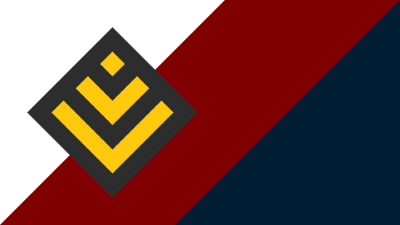
The official flag of Sarconia from 2109 onwards has been the traditional Sarconian diamond on a Dorvic red and white field split vertically down the centre. The symbol is of indeterminate nomadic origin, and is at least centuries old. The design was personally chosen by Davedhrein Kerman to be strongly reminiscent of the Combined Provinces of Doren and promote continental unity.
The legally prescribed aspect ratio of the flag is 16:9. Examples in 3:5 have also been produced and occasionally used for official applications, though this version is not as widespread.
Colour Scheme
| Format | Dorvic Red | White | Grey | Sarconian Yellow |
|---|---|---|---|---|
| RGB | [127,0,0] | [255,255,255] | [45,45,45] | [255,201,14] |
| HEX | #7F0000 | #FFFFFF | #2D2D2D | #FFC90E |
